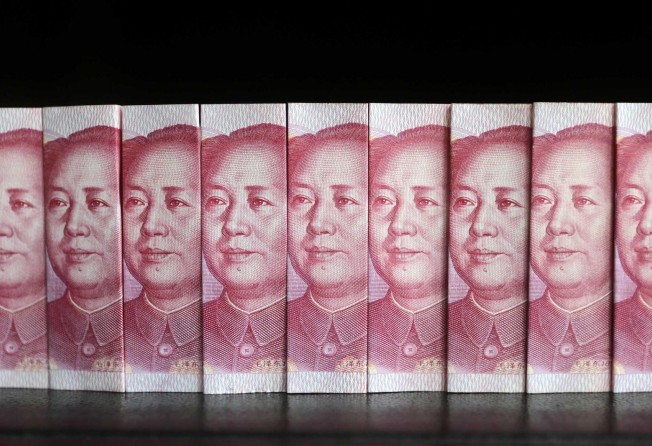China's central bank may ease credit after weak bond sales
Low interest rates blamed for cool response, but analysts say central bank has plenty of options to avoid American-style quantitative easing

China's central bank may have to ease credit further, after several provincial governments met cold responses to bond sales and amid rising pressure to spur infrastructure investment.
But analysts said the People's Bank of China (PBOC) did not need to pursue quantitative easing (QE) as had the United States during the global financial crisis.
The Jiangsu government was the first to delay its 64.8 billion yuan (HK$81 billion) debt sales last week as the bonds' return was too low to lure interest. Anhui and a few other provinces may be forced to postpone debt sales too, local media reported.
Beijing had hoped the bond sales would help accelerate local infrastructure building after economic growth slumped to a six-year low. But buying the bonds would squeeze banks' funds that could be otherwise invested in higher-return products.
A few media agencies reported this week that PBOC might adopt a mainland version of QE, such as through buying commercial bank assets or local government debt directly.
PBOC chief economist Ma Jun, however, denied such a possibility in an interview with China Business News.
He said the central bank had ample tools to maintain "reasonable liquidity" and keep "steady growth" in money and credit supply. "There's no need to directly buy newly-issued local debt to print money in so-called QE," he said.
Analysts said PBOC had ample tools, such as offering collateralised funding to banks through pledged supplementary lending (PSL), or conventional open-market operations and more cuts to reserve requirement ratios, to raise liquidity.
A US-type of QE, or outright purchase of long-term local government bonds, might be the last resort that PBOC would adopt, economists said. It happens only when the central bank finds it hard to adjust market liquidity with existing policy tools, such as when short-term interest rates are at zero.
"With interest rates and RRRs (reserve requirement ratios) still very high in absolute and relative terms, conventional tools are not yet exhausted," Westpac Institutional Banking Group said.
China's one-year benchmark lending rate is at 5.35 per cent. The RRR, the share of banks' deposits required to park as reserve at the central bank, remains at 18.5 per cent.
Finance Minister Lou Jiwei told the Post in March that local governments' 1-trillion-yuan (HK$1.27 trillion) debt-for-bond swap plans would not need help from the central bank. He said these would be sold to a variety of investors.